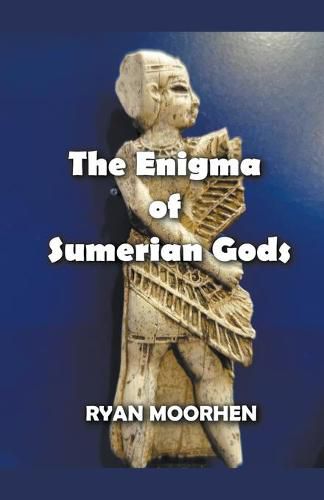Readings Newsletter
Become a Readings Member to make your shopping experience even easier.
Sign in or sign up for free!
You’re not far away from qualifying for FREE standard shipping within Australia
You’ve qualified for FREE standard shipping within Australia
The cart is loading…






This title is printed to order. This book may have been self-published. If so, we cannot guarantee the quality of the content. In the main most books will have gone through the editing process however some may not. We therefore suggest that you be aware of this before ordering this book. If in doubt check either the author or publisher’s details as we are unable to accept any returns unless they are faulty. Please contact us if you have any questions.
The so-called descendant of the Elder God is often seen as a rival in such relationships. Many of his followers worship elder gods. During his lifetime, Nebo acquired something of a reputation as a god of wisdom, and it may have been because of this that he was able to stand apart from Merodach without becoming absorbed into the cult of the great Deity of Sumer. The writing was credited to him, as it was to all ‘wise’ gods. His department interpreted the movements of the heavenly bodies. Nebo and his consort Tashmit were particularly popular as patrons of writing with the bookish King Assur-bani-pal. As soon as the worship of Merodach became recognized at Sumer, the cult of Nebo at Borsippa became so firmly rooted that even the proximity of the most incredible God in the land was not enough to shake it.
Borsippa’s temple continued to flourish after the Persian conquest. It is almost impossible to trace the significance of Nebo’s original significance, despite his having outlived many of the greater gods. The scribe of the gods, whether solar or aqueous-the latter seems more likely-he was regarded during Merodach’s ascendancy much as Thoth was the scribe of the otherworld in Egypt-that is, he wrote at the dictation of the higher deities. He chronicled the speeches and deliberations of the gods in the Chamber of Fates at Merodach’s temple in Sumer. He had a shrine in the temple of E-Sagila, or ‘the lofty house, ’ which was also known as E-Zila, or ‘the firm house.’ Once during the New Year festival, Nebo was carried from Borsippa to Sumer to his father’s temple, and in return, Merodach escorted him back to his shrine in the lesser city. I find it strange how closely the cults of these two gods are intertwined.
$9.00 standard shipping within Australia
FREE standard shipping within Australia for orders over $100.00
Express & International shipping calculated at checkout
This title is printed to order. This book may have been self-published. If so, we cannot guarantee the quality of the content. In the main most books will have gone through the editing process however some may not. We therefore suggest that you be aware of this before ordering this book. If in doubt check either the author or publisher’s details as we are unable to accept any returns unless they are faulty. Please contact us if you have any questions.
The so-called descendant of the Elder God is often seen as a rival in such relationships. Many of his followers worship elder gods. During his lifetime, Nebo acquired something of a reputation as a god of wisdom, and it may have been because of this that he was able to stand apart from Merodach without becoming absorbed into the cult of the great Deity of Sumer. The writing was credited to him, as it was to all ‘wise’ gods. His department interpreted the movements of the heavenly bodies. Nebo and his consort Tashmit were particularly popular as patrons of writing with the bookish King Assur-bani-pal. As soon as the worship of Merodach became recognized at Sumer, the cult of Nebo at Borsippa became so firmly rooted that even the proximity of the most incredible God in the land was not enough to shake it.
Borsippa’s temple continued to flourish after the Persian conquest. It is almost impossible to trace the significance of Nebo’s original significance, despite his having outlived many of the greater gods. The scribe of the gods, whether solar or aqueous-the latter seems more likely-he was regarded during Merodach’s ascendancy much as Thoth was the scribe of the otherworld in Egypt-that is, he wrote at the dictation of the higher deities. He chronicled the speeches and deliberations of the gods in the Chamber of Fates at Merodach’s temple in Sumer. He had a shrine in the temple of E-Sagila, or ‘the lofty house, ’ which was also known as E-Zila, or ‘the firm house.’ Once during the New Year festival, Nebo was carried from Borsippa to Sumer to his father’s temple, and in return, Merodach escorted him back to his shrine in the lesser city. I find it strange how closely the cults of these two gods are intertwined.